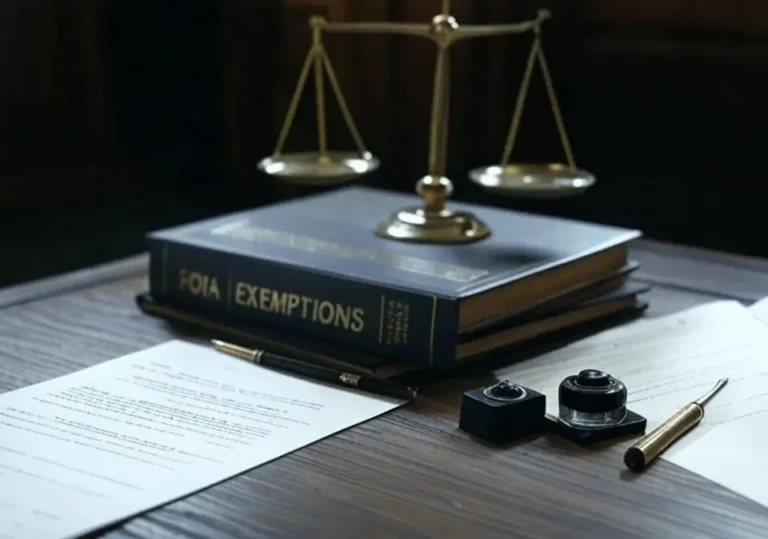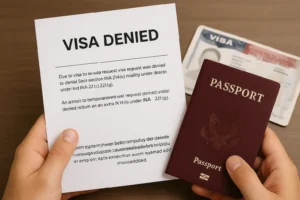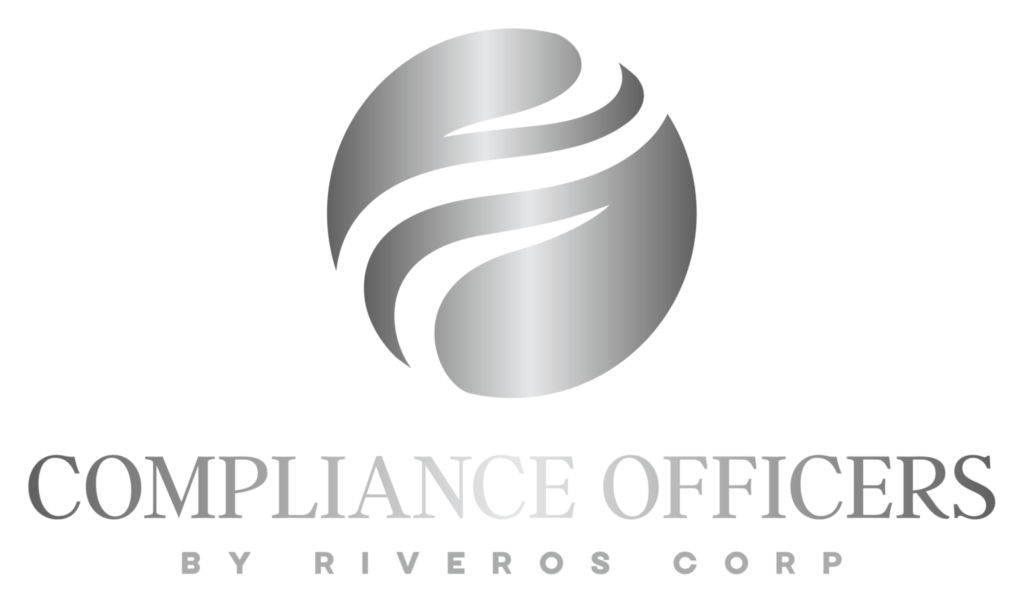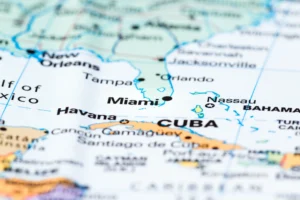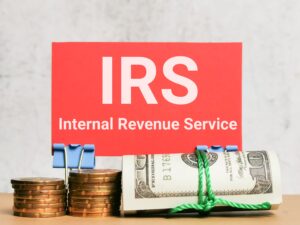Did you know that over 50% of FOIA requests are partially or fully denied due to exemptions?
The Freedom of Information Act (FOIA) is a cornerstone of government transparency in the United States. Enacted in 1966, it grants the public the right to request access to federal agency records, subject to certain exemptions. These FOIA exemptions protect information that, if disclosed, could harm national security, personal privacy, or proprietary business data. Understanding FOIA and its exemptions is crucial for anyone seeking public records.
In this article, we will explore what FOIA is, why exemptions exist, and how they shape public access to government-held data. We will detail all nine exemptions, explain the difference between exemptions and exclusions, and provide guidance on determining whether a request might be rejected. You will also learn about the appeal process if a request is denied. Finally, we will examine real-world examples of protected documents and explain how our Compliance Officers can assist with FOIA requests—from drafting the application to handling any fingerprinting requirements, if needed.
Introduction to FOIA and its purpose
The Freedom of Information Act (FOIA) promotes open government by allowing citizens, journalists, researchers, and organizations to request records from federal agencies. FOIA aims to ensure transparency, foster accountability, and build trust between the public and the government. However, it is not a blanket authorization for all records: FOIA exemptions permit agencies to withhold information under specific circumstances.
Despite these limitations, FOIA remains a powerful tool for uncovering information about government programs, operations, and decision-making processes. Whether you’re investigating potential misconduct, conducting academic research, or simply curious about official actions, FOIA empowers you to request records that might otherwise remain out of reach. Understanding when and why exemptions apply is key to submitting effective requests.
Before submitting a FOIA request, it’s crucial to understand how exemptions might affect your chances of getting the information you need. This guide will help you prepare your petition properly: FOIA Request Form , What You Need to Know Before You Submit.

Why do FOIA exemptions exist?
When first learning about FOIA, many people ask: If the law promotes transparency, why are there so many ways to withhold information? The answer lies in balancing openness with other critical interests:

FOIA exemptions help ensure that the public’s right to know does not compromise these vital concerns. While critics argue that some exemptions can be overused, their intent is to maintain a balanced system that favors disclosure whenever possible.
The 9 FOIA exemptions explained
FOIA outlines nine specific exemptions that allow agencies to withhold information. Below is a detailed look at each, including their scope, examples, and importance:
Exemption 1: National security
- Scope: Covers records classified under an Executive Order to protect national defense or foreign policy.
- Examples: Military strategies, intelligence activities, or weapons systems data.
- Importance: Prevents sensitive defense materials from falling into the wrong hands.
Exemption 2: Internal agency rules and practices
- Scope: Applies to documents related solely to internal personnel rules and practices.
- Examples: Employee shift schedules, internal workflow charts, or routine HR guidelines.
- Importance: Shields operational details that hold little public interest and could disrupt agency functioning.
Exemption 3: Information exempt under other laws
- Scope: Relates to information prohibited from disclosure by another federal statute.
- Examples: Tax returns (protected by the Internal Revenue Code).
- Importance: Enforces confidentiality requirements established outside of FOIA.
Exemption 4: Confidential business information
- Scope: Shields trade secrets and commercial or financial information obtained from a person and considered privileged or confidential.
- Examples: Proprietary processes, corporate financial statements, or marketing strategies.
- Importance: Protects businesses from competitive harm and encourages cooperation with government data requests.
Exemption 5: Inter-agency or intra-agency privileges
- Scope: Covers privileged internal communications, such as attorney-client privilege or deliberative process privilege.
- Examples: Drafts of policymaking documents, legal opinions, or emails discussing preliminary recommendations.
- Importance: Promotes open discussion among officials without fear of immediate public scrutiny.
Exemption 6: Personal privacy
- Scope: Protects personal data when disclosure would constitute an unwarranted invasion of privacy.
- Examples: Medical records, personal email addresses, or Social Security numbers.
- Importance: Balances the right to know against individual privacy rights.
Exemption 7: Law enforcement records
- Scope: Covers records compiled for law enforcement purposes that, if disclosed, could:
- Interfere with enforcement proceedings,
- Deprive a person of a fair trial,
- Unfairly invade personal privacy,
- Expose a confidential source,
- Reveal investigative techniques, or
- Endanger someone’s life or physical safety.
- Examples: Ongoing investigation files, confidential informant details, or specialized surveillance methods.
- Importance: Allows agencies to conduct investigations effectively and protect public safety.
- Scope: Covers records compiled for law enforcement purposes that, if disclosed, could:
Exemption 8: Financial institutions
- Scope: Protects information related to the regulation or supervision of financial institutions.
- Examples: Examination reports of banks or oversight statements concerning investment firms.
- Importance: Maintains stability within the financial sector by keeping regulatory assessments confidential.
Exemption 9: Geological and geophysical information
- Scope: Pertains to geological and geophysical data, including maps, regarding wells.
- Examples: Oil well locations or seismic data relevant to mineral exploration.
- Importance: Prevents the exploitation of valuable resource data and maintains a fair competitive environment.
If you want to dive deeper into the specific legal bases for withholding information, check out this resource that explains in detail the 9 exemptions to a FOIA request. It breaks down each exemption and how it applies in practice.
Exemptions vs. Exclusions: What’s the Difference?
Beyond FOIA exemptions, there are «exclusions» for highly sensitive law enforcement records. In these rare cases:
- An agency can «exclude» the records from the FOIA process, treating them as if they do not exist.
- This typically applies to intelligence or criminal investigations where acknowledging the records could compromise operations.
While both exemptions and exclusions limit disclosure, exclusions are used in narrower circumstances to protect active investigative work.
How to Know if a FOIA request might be rejected
Submitting a FOIA request does not guarantee complete disclosure. To gauge the likelihood of rejection, consider:
- Nature of the information: Is it related to national security, personal data, or corporate secrets?
- Agency jurisdiction: Agencies handling sensitive information may be more likely to withhold documents.
- Ongoing investigations: Exemption 7 could apply if there are active law enforcement proceedings.
- Statutory restrictions: Some data is automatically protected by other laws (Exemption 3).
Researching the agency and the type of information you need can improve your chances of a successful request.
Can you appeal FOIA exemption decisions?
Yes. If your FOIA request is denied or heavily redacted, you can file an administrative appeal. Here’s how:

If the appeal fails, you can seek judicial review in federal court. For example, in 2023, a journalist successfully challenged a denial based on Exemption 7, proving the agency improperly withheld records from a closed investigation.
Examples of documents under FOIA exemptions
Real-world cases illustrate how FOIA exemptions protect government records:
- Exemption 1: Intelligence reports on active military operations.
- Exemption 4: Government contracts with pricing information redacted to prevent competitive harm.
- Exemption 7: Informant identities in ongoing investigations.
Despite these protections, FOIA has led to the release of critical information in countless cases, balancing disclosure with necessary safeguards.
Common myths about FOIA exemptions
Let’s debunk some misconceptions to help you navigate the process:
- Myth 1: «All government records are public.»
Reality: Exemptions protect sensitive information. - Myth 2: «There’s nothing you can do if your request is denied.»
Reality: You can appeal, and sometimes win. - Myth 3: «Exemptions are always applied correctly.»
Reality: Agencies can overreach, and appeals can correct this.
How Compliance Officers can assist with FOIA requests
Our Compliance Officers provide targeted support in two key areas:
- Drafting effective requests: We help clarify your request’s scope, identify relevant agencies, and use precise language to minimize the risk of denial.
- Fingerprinting requirements: If needed, we coordinate the fingerprinting process to ensure all documentation meets agency standards.
This streamlined approach saves you time and keeps your FOIA journey under one roof.
FOIA in a global context
Other countries have similar transparency laws:
- United Kingdom: The Freedom of Information Act 2000 exempts national security and commercial data.
- Canada: The Access to Information Act protects cabinet confidences and international relations.
This broader perspective highlights global efforts toward government transparency.
Recent trends and statistics
In fiscal year 2022, federal agencies received over 800,000 FOIA requests, with approximately 50% granted in full. The most commonly used exemptions were Exemption 6 (personal privacy) and Exemption 7 (law enforcement records), according to the Department of Justice. Understanding these trends can help you anticipate challenges and tailor your requests.
Sometimes, the impact of FOIA exemptions is best illustrated through real-life cases. Here’s an example of how one traveler used FOIA to uncover the reason behind their U.S. entry denial: What is FOIA? How One Traveler Uncovered the Reason Behind Their U.S. Entry Denial.
Conclusion
Navigating FOIA exemptions is key to using the Freedom of Information Act effectively. This law promotes transparency, but its nine exemptions—like national security and personal privacy—set limits to protect sensitive data. Understanding these boundaries helps you craft smarter requests.
To succeed, research the agency and information you’re targeting. Specific, well-worded requests reduce the chance of redactions or denials. If your request fails or returns heavily redacted documents, you can appeal.
Compliance Officers can simplify the process. Their expertise ensures precise requests and handles extras like fingerprinting, saving you time. Mastering FOIA exemptions lets you request strategically, knowing what’s accessible and why some data stays confidential. This empowers you to push for transparency while respecting legal protections.
Ready to file a FOIA request? Don’t let exemptions deter you. Compliance Officers support you from drafting to submission, ensuring technical compliance. Contact us for personalized help and unlock government information confidently.
Contact us today for personalized assistance and start unlocking the information you need with confidence.
Legal Disclaimer:
This article is provided for informational purposes only and does not constitute legal advice. The content herein is not intended to substitute professional legal consultation. For specific guidance regarding your individual circumstances, please consult directly with a qualified attorney licensed to practice in your jurisdiction.

